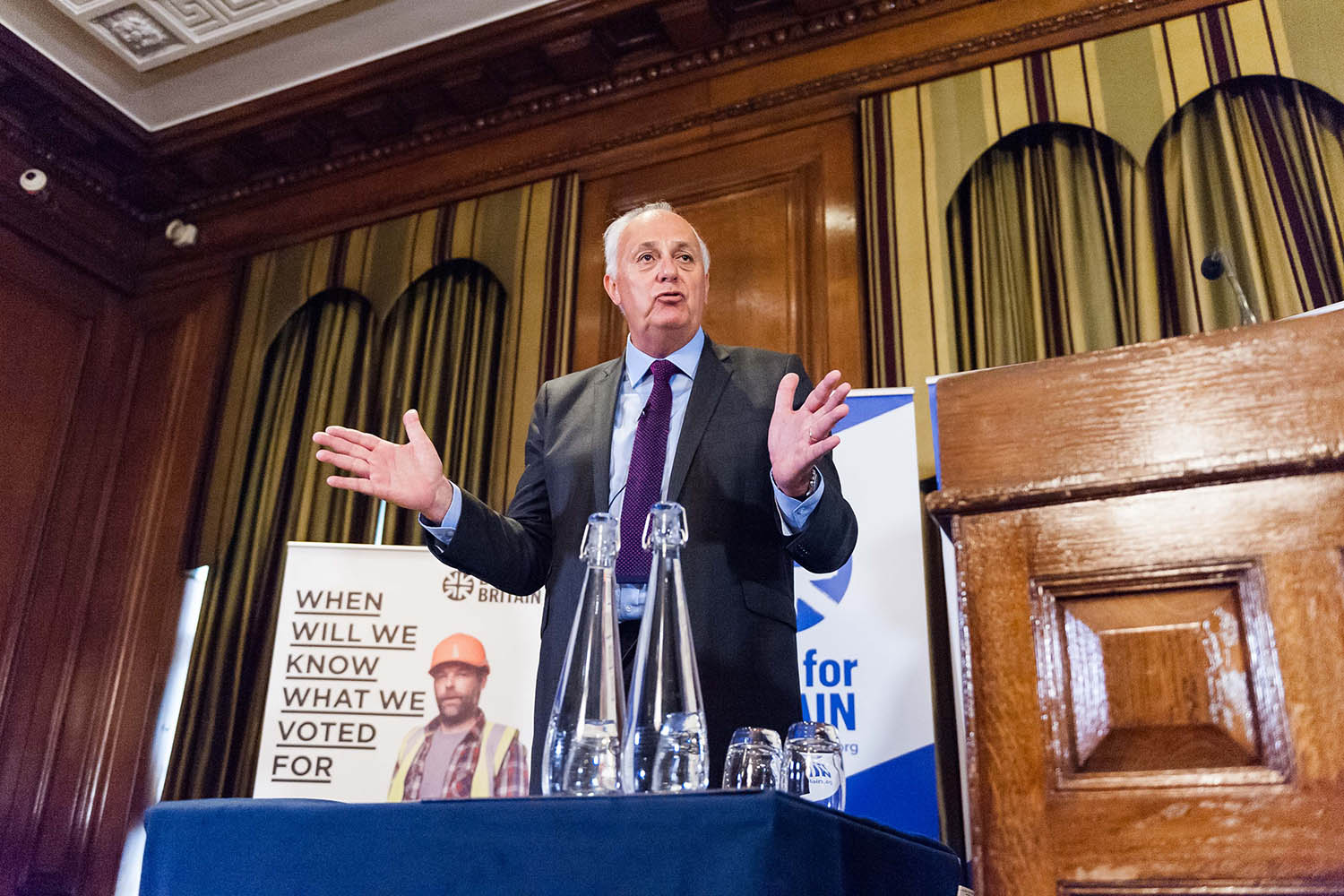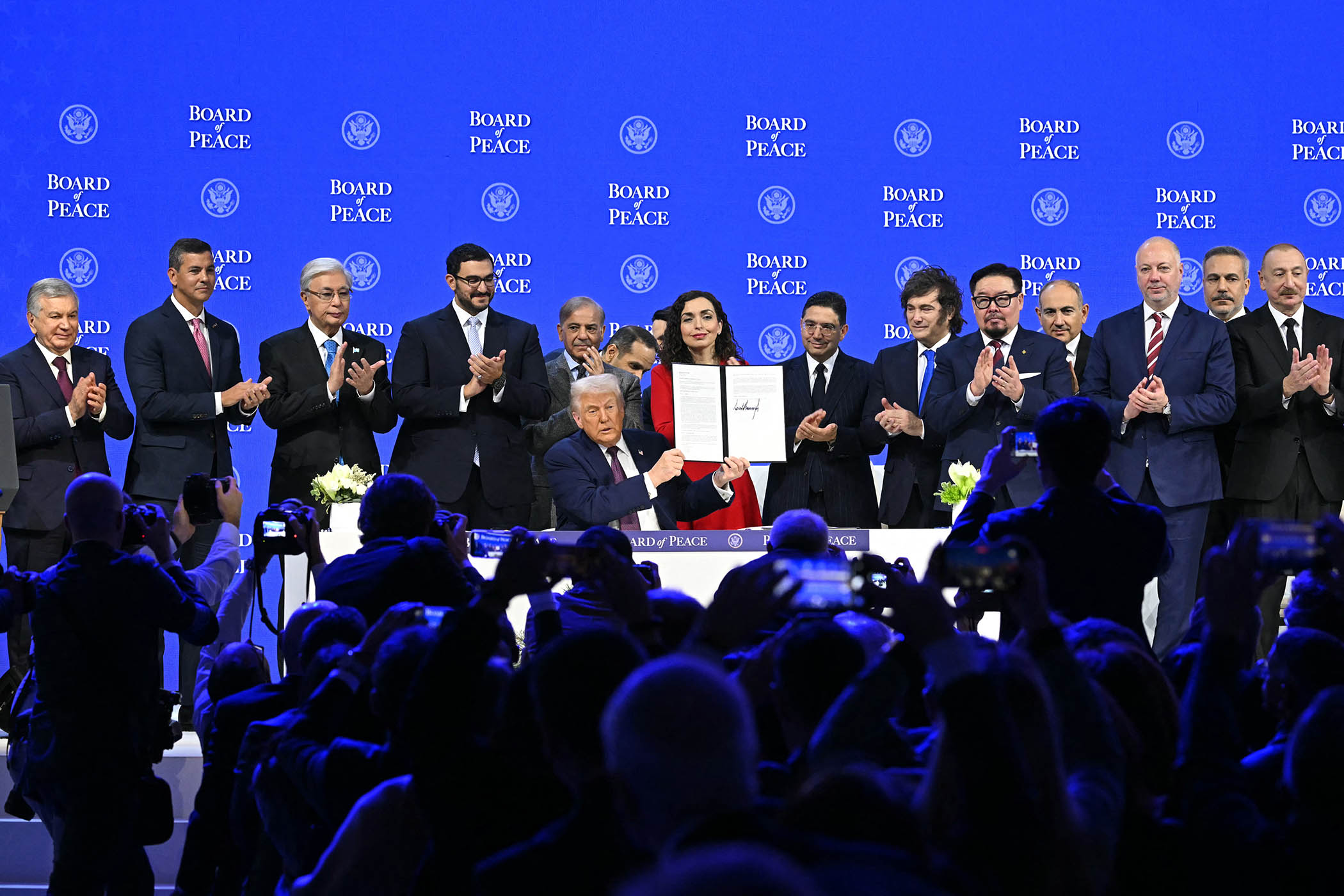Mark Malloch Brown describes himself as a “middle of the roader”; he’s a moderate who uses language carefully, a diplomat with an aversion to hyperbole. Yet on the question of Palestinian statehood, he now finds himself supporting something that, in his own words, “would have been a preserve of the Corbynite left”.
With more than 50 other career diplomats, Malloch Brown – a one-time deputy secretary-general of the United Nations and a Foreign Office minister under Gordon Brown – called for the UK to join with France and unconditionally recognise Palestinian statehood. The UK has long said it would support such a move only as part of a negotiations between Israel and Palestine over a two-state solution.
But the manner in which Israel has carried out its war in Gaza has dramatically changed the way Israel is perceived, says Malloch Brown.
“Israel is condemning itself to a pariah status,” he said. “The world is utterly shocked that Israel would employ these war-crime tactics in this indiscriminate way. The diplomatic political scales have tilted in an extraordinary way.”
At a UN conference on a two-state solution, to be held this week in New York, France and Saudi Arabia hope to build momentum towards a symbolic moment in September when at least one permanent member of the UN security council will formally back Palestinian statehood.
President Macron initially wanted to do it in conjunction with the UK, believing it would make more of an impact, but the UK has been wary of changing its position. Talks between French and British diplomats on Palestinian recognition have been going on for at least 18 months. When David Cameron was foreign secretary, he was open to the consideration, officials have said, but ultimately felt the then prime minister, Rishi Sunak, would not support it. David Lammy is, according to those same officials, in a similar position: wanting to back it but so far lacking Keir Starmer’s approval.
In 2014, parliament backed recognition in a vote brought by the Labour opposition. But in a sign of how far the political ground has shifted, Tobias Ellwood, the Conservative Middle East minister who opposed the decision in 2014, believes the UK should back recognition. “Britain recognises states, not governments,” he told The Observer. “Were it to follow France in recognising Palestine, it could help isolate Hamas from the broader Palestinian population, the majority of whom accept Israel’s right to exist.
“To those who argue now is not the right time: what strategy exists that will make it the right time? Waiting for perfect conditions is not a plan – it’s an excuse for inaction.”
Related articles:
Those who support the move acknowledge little would change in practice. The Palestinian mission to the UK would be upgraded to an embassy and its head, Husam Zomlot, to ambassador. But beyond the symbolism it could reignite a debate around Palestine’s future and, as Malloch Brown puts it, “tilt the diplomatic mast towards a solution.”
And it would send a message to Benjamin Netanyahu and the far-right elements of his coalition that diplomacy cannot be avoided, Malloch Brown said. “You can’t bomb your way out of the reality that you're going to have to negotiate with the Palestinians.”
Newsletters
Choose the newsletters you want to receive
View more
For information about how The Observer protects your data, read our Privacy Policy
Photograph by Wiktor Szymanowicz/Future Publishing via Getty



